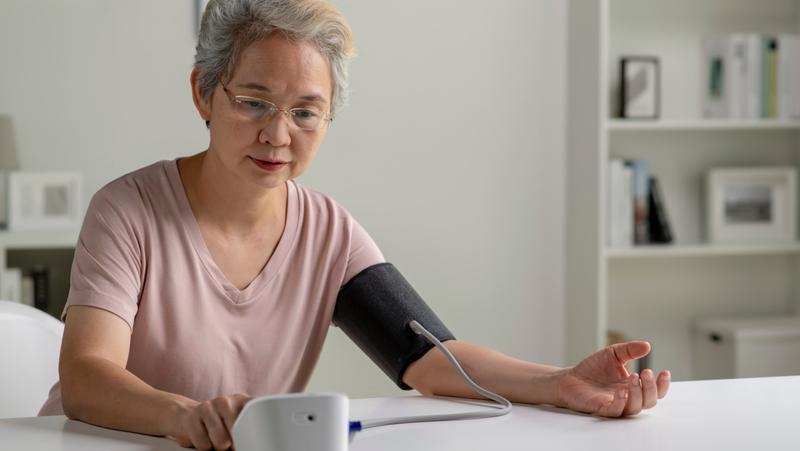Technology enabled remote monitoring of blood pressure: Insights from the literature
This paper presents findings from a scoping review of published evidence on technology-enabled remote monitoring in blood pressure monitoring pathways.
Remote blood pressure monitoring at home has potential to help with management of hypertension, but there is little systematic learning about how it is being implemented across the United Kingdom and what types of actions are important to support successful adoption, scale and spread.

Photo by amenic181/Adobe Stock
Hypertension is a key public health issue, given its prevalence and links to risks of cardiovascular disease. There is compelling evidence for the benefits of controlled blood pressure on cardiovascular disease outcomes, and a growing interest amongst system decisionmakers and health care providers in innovative approaches to supporting patients with hypertension. This includes an interest in technology-enabled remote monitoring and its potential to help manage demand and pressures on health services.
Remote blood pressure monitoring offers potential for better care at home, greater patient engagement and to reduce pressures on healthcare services. Despite this and national efforts to increase uptake (such as the NHS England’s BP@home programme initiated during the COVID-19 pandemic, and the ConnectMe programme in Scotland), there is little evidence on how implementation approaches address known implementation challenges and contribute to desired outcomes and impacts, how considerations of inequalities impact on implementation decisions, and key considerations for those looking to scale, spread and sustain technology-enabled blood pressure monitoring.
DECIDE (Digitally Enabled Care in Diverse Environments) is a new centre for rapid evaluation of technology-enabled remote monitoring in health and care, funded by the National Institute for Health and Care Research Health and Social Care Delivery Research (NIHR HSDR). DECIDE is a partnership between the University of Oxford and RAND Europe.
The DECIDE centre will conduct an evaluation of remote monitoring of blood pressure, with NHS England as the policy customer. The aim of this evaluation is to improve the evidence base on what works, how, why and in which contexts, as it relates to services involving remote blood pressure monitoring. This evaluation will provide novel insights to inform implementation decisions focused on scale, spread and sustainability of remote blood pressure monitoring care pathways. We hope that the findings will be helpful for informing policy decisions at a national level, support local system improvement and implementation, as well as be of wider interest to charities, diverse populations and scholars from a wide range of disciplines.